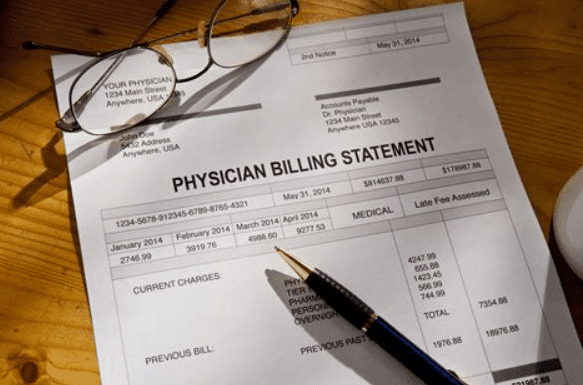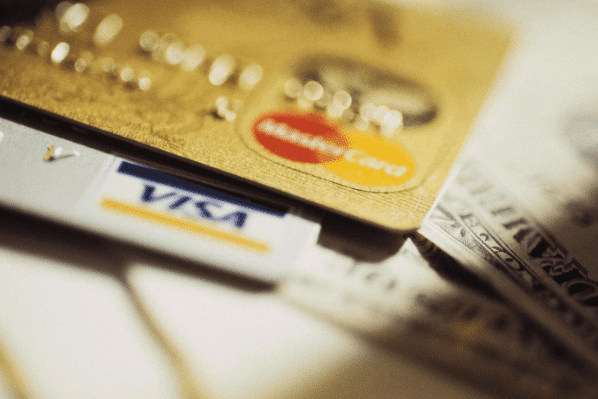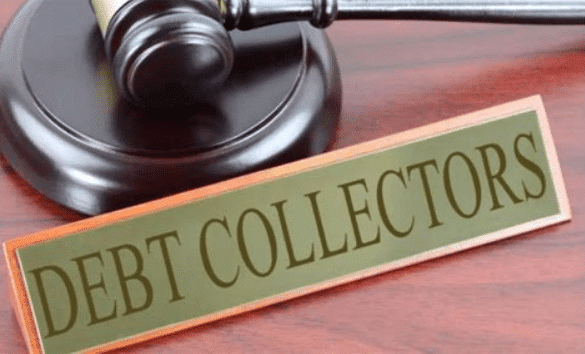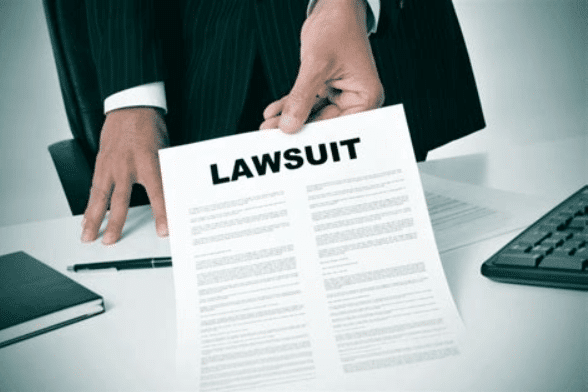If you’re in the midst of dealing with debt collection efforts from Colinfobur, also known as the Collection Information Bureau, Inc., it’s crucial to know how to reach them and what steps to take to address the situation effectively.
Here’s a guide to help you navigate this process:
- Contacting Colinfobur: To reach Colinfobur, you can use the phone number provided in any communication you’ve received from them. This may include letters, emails, or notices regarding the debt they’re attempting to collect.
- Responding to Colinfobur: It’s imperative to respond to Colinfobur’s communication promptly. However, you should refrain from admitting liability for the debt until you’ve verified its accuracy. Your response should be based on the information provided in the summons you received by mail.
- Filing Your Response: Once you’ve prepared your response to Colinfobur, known as an “answer,” it should be filed with the clerk of the court where the lawsuit was filed. Request a stamped copy of your response for your records.
- Sending Your Response: After obtaining a stamped copy of your response, send it via certified mail to the lawyer representing Colinfobur. This ensures that your response is properly documented and delivered.
Remember, responding to Colinfobur’s communication is essential, but you should do so carefully and without admitting liability for the debt. By following these steps and seeking legal advice if needed, you can effectively address the debt collection efforts and protect your rights throughout the process.
What is a Judgment?
A judgment is a legal determination made by a court that confirms you owe a debt that you have not paid as required. When a judgment is issued, it grants the creditor or debt collector certain rights to pursue collection actions. These actions can include garnishing your wages, placing a lien on your property (such as your home), or freezing and garnishing your bank account without your prior consent.
If you fail to respond to a summons for a debt lawsuit, the court may issue a default judgment against you. This means that, by not engaging in the legal process, you essentially forfeit your opportunity to defend yourself, and the court automatically rules in favor of the creditor or debt collector. Default judgments empower debt collectors to take aggressive collection actions against you, including garnishment, without further legal proceedings.
It’s important to take any legal notices or summons seriously and respond appropriately. Ignoring such notices can lead to unfavorable outcomes, including the issuance of a judgment against you. If you receive a summons for a debt lawsuit, it’s advisable to seek legal advice and explore your options for responding to the summons and defending your rights in court. Taking proactive steps can help you avoid the potentially severe consequences associated with judgments.
Use ZumaZip to respond to debt collection lawsuits in 15 minutes.
How to Find Out Which Debt Collectors You Owe
To identify the debt collectors you owe, it’s crucial to take proactive steps to address your financial obligations. Here’s a guide to help you navigate this process effectively:
- Review Your Credit Reports: Obtain copies of your credit reports from major credit bureaus such as Equifax, Experian, and TransUnion. These reports list your creditors and any debts that have been reported to collection agencies. Reviewing your credit reports will give you a comprehensive overview of your outstanding debts and the corresponding collectors.
- Check Your Mail and Records: Review any recent correspondence you’ve received, including letters or notices from debt collectors. Additionally, check your financial records, such as bank statements and past bills, for any outstanding debts that may have been referred to collection agencies.
- Contact Creditors Directly: If you’re uncertain about a particular debt, reach out to the original creditor for clarification. They can provide information about any outstanding balances and whether the debt has been transferred to a collection agency.
- Respond Promptly: If you receive communication from a debt collector, respond promptly and request validation of the debt in writing. This will help you verify the legitimacy of the debt and understand your options for resolution.
- Seek Professional Assistance: If you’re overwhelmed or unsure how to proceed, consider seeking guidance from a financial advisor or credit counselor. They can provide personalized advice and assistance in navigating the debt resolution process.
Remember, addressing your debts and working towards financial stability may require time and effort, but it’s a crucial step towards rebuilding your credit and achieving a healthier financial future. By taking proactive measures to identify and address your debts, you can regain control of your finances and move towards a brighter financial outlook.
Step 1: Get Organized
Before proceeding further, it’s essential to get organized and gather all relevant documents to assess your financial obligations accurately. While Colinfobur may be pursuing legal action for a debt, it’s crucial to determine if the entire amount is owed and whether the debt may be time-barred.
To gather this information:
- Collect Bills and Statements: Gather all bills, statements, and correspondence related to the debt in question. This includes any communications from Colinfobur and documentation from the original creditor.
- Review Documents: Carefully review each document to understand the nature of the debt, the amount owed, and any associated fees or charges.
- Conduct Calculations: Use the gathered information to calculate the total amount owed. Consider any potential discrepancies or errors in the debt.
By organizing your financial documents and conducting a thorough review, you can gain clarity on your debt obligations and assess whether Colinfobur’s claims align with your records. This step lays the foundation for informed decision-making as you navigate the debt resolution process.
Step 2: Get Copies of Your Credit Reports
To figure out your debt and how much you owe, you should obtain copies of your credit report. There are three main bureaus: Experian, Equifax, and TransUnion. You can find a free copy of one of these three credit reports at both annualcreditreport.com. The only catch is you may only download one free copy each year. You can also go to creditkarma.com, which offers two of the three absolutely free. Be sure to review your debts and credit report to see if Colinfobur is on there. If they are not, then you will need to request proof of these debts.
Step 3: Contact Colinfobur
Reach out to Colinfobur to verify the amount they claim you owe. While it’s important to address debts with all creditors, confirming the details with Colinfobur is essential. According to legal guidelines, if Colinfobur cannot provide verification of the debt, they are not permitted to pursue collection efforts against you. By proactively contacting Colinfobur and seeking clarification on the amount owed, you’re exercising your rights as a consumer and ensuring transparency in the debt collection process. This step is crucial in resolving any discrepancies and safeguarding your financial interests.
Step 4: Reconcile Information
Take the time to compare the information on your credit reports with the records you’ve gathered. Ensure that the details align with what Colinfobur has provided regarding your debt. As you review your credit reports, you’ll find that Colinfobur’s contact information is typically listed alongside any reported debts. This will include their phone number, offering you direct access to Colinfobur should you need to reach out for further clarification or assistance. By reconciling the information from your records with what’s reported on your credit reports, you’ll gain a comprehensive understanding of your financial standing and be better equipped to address any discrepancies or concerns effectively.
Step 5: Determine Fees
When a debt goes to collection, the agency that acquires your debt may add on extra fees. These are “collection fees” to pay for the process in which it takes to collect on your debt. Although it is legal for a collection agency to charge reasonable fees under the “Fair Debt Collection Practices Act,” there are limits.
Absolutely, it’s essential for Colinfobur to provide clear and specific details regarding the debt they are attempting to collect. This includes disclosing the exact amount owed, including any fees or charges associated with the debt. Additionally, under the Fair Debt Collection Practices Act (FDCPA), debt collectors are required to furnish proof of the debt upon request.
Colinfobur should explicitly state the following information:
- Total Amount Owed: This should be the precise amount of the debt, including any fees or charges that have been added to the original balance.
- Breakdown of Fees: If any additional fees or charges have been applied to the debt, Colinfobur must provide a detailed breakdown, clearly indicating the nature and amount of each fee.
- Proof of Debt: If requested by the debtor, Colinfobur must provide evidence verifying the existence and validity of the debt. This could include documentation from the original creditor, or a statement outlining any changes in the owed amount since the debt was initially incurred.
By adhering to these requirements, Colinfobur ensures transparency and fairness in their debt collection practices, empowering individuals to make informed decisions regarding their financial obligations. If you have any doubts or concerns about the information provided by Colinfobur, don’t hesitate to request verification of the debt and seek further clarification as needed.
File a response to debt collectors fast with ZumaZip.
Where to Get Help With Your Credit Report
When it comes to managing negative items on your credit report, seeking assistance from a reputable credit repair agency can be a valuable option. These agencies specialize in helping individuals address various debts, including those with Colinfobur, as well as other creditors. By engaging with a top-rated credit repair agency, you can access expert guidance on navigating your debts and restoring your credit health.
Understanding the contents of your credit report is paramount. It’s advisable to immerse yourself in resources related to credit matters and take proactive steps to improve your credit profile. Staying informed ensures you’re equipped to effectively manage your dealings with Colinfobur. Being cognizant of your financial obligations and promptly addressing any legal notices or summons received is crucial.
Once you’ve successfully rehabilitated your credit score, maintaining a positive credit trajectory is key. Consistently paying your bills on time each month is essential, and in instances where you encounter difficulty with debt repayment, reaching out to your creditors early can help mitigate potential issues before they escalate. By remaining vigilant and proactive, you can sustain a healthy credit score and financial well-being over time.
Here’s the Phone Number for Colinfobur:
If you are looking to find the phone number for Colinfobur, just remember there are other points of contact as well, such as an address and their website.
Phone Number
- 800-231-3514
- 800-841-3065
Address
202 North Federal Highway
Lake Worth, FL 33460
Website
https://Cibflorida.com
What is ZumaZip?
ZumaZip is a convenient solution designed to streamline your response to a debt collection lawsuit. Here’s a breakdown of what you can expect when you use ZumaZip:
Firstly, you’ll access our user-friendly web application, which guides you through the process step by step. You’ll be prompted to answer a series of questions related to your specific situation. Once you’ve completed the questionnaire, you have the option to either print out the finalized forms and mail them to the appropriate courts yourself, or you can opt to utilize ZumaZip’s services to file them on your behalf. Additionally, if you choose this option, an attorney will review your document for added peace of mind.
If you’re seeking guidance on how to effectively respond to a debt collection lawsuit, ZumaZip can provide the assistance you need. Feel free to explore our FAQs for more information on what ZumaZip has to offer.
What if I haven’t been sued yet?
If you’ve only received a collections notice, but not a lawsuit, the best way to respond is with a Debt Validation Letter. When a debt collector contacts you in any way, whether it’s by phone or mail, you can respond by formally requesting a debt validation with a Debt Validation Letter . This letter notifies the collector that you dispute the debt and forces them to provide proof you owe the debt. They can’t call you or continue collecting until they provide validation of the debt. This flowchart shows how you can use a Debt Validation Letter to win.
Get started with a Debt Validation Letter here.
How to Answer a Summons for debt collection in all 50 states
Here’s a list of guides on how to respond to a debt collection lawsuit in each state:
- Alabama
- Alaska
- Arizona
- Arkansas
- California
- Colorado
- Connecticut
- Delaware
- Florida
- Georgia
- Hawaii
- Idaho
- Illinois
- Indiana
- Iowa
- Kansas
- Kentucky
- Louisiana
- Maine
- Maryland
- Massachusetts
- Michigan
- Minnesota
- Mississippi
- Missouri
- Montana
- Nebraska
- Nevada
- New Hampshire
- New Jersey
- New Mexico
- New York
- North Carolina
- North Dakota
- Ohio
- Oklahoma
- Oregon
- Pennsylvania
- Rhode Island
- South Carolina
- South Dakota
- Tennessee
- Texas
- Utah
- Vermont; Vermont (Small Claims court)
- Virginia
- Washington
- West Virginia
- Wisconsin
- Wyoming
Guides on how to beat every debt collector
Hey there! Facing off against a debt collector can feel like a daunting challenge, but fear not! We’re here to help you navigate through it all with our handy guides designed to assist you in beating every debt collector you encounter. Whether you’re facing a new lawsuit or dealing with a persistent collector, we’ve got your back. Stay positive, stay informed, and let’s tackle this together!
- Absolute Resolutions Investments LLC
- Accredited Collection Services
- Alliance One
- Amcol Clmbia
- American Recovery Service
- Asset Acceptance LLC
- Asset Recovery Solutions
- Associated Credit Services
- Autovest LLC
- Cach LLC
- Cavalry SPV I LLC
- Cerastes LLC
- Colinfobur
- Covington Credit
- Crown Asset Management
- CTC Debt Collector
- Cypress Financial Recoveries
- Delanor Kemper & Associates
- Eagle Loan of Ohio
- Educap
- Estate Information Services
- FIA Card Services
- Forster & Garbus
- Freshview Solutions
- Fulton Friedman & Gullace LLP
- Harvest Credit Management
- Howard Lee Schiff
- Hudson & Keyse LLC
- Integras Capital Recovery LLC
- Javitch Block
- Jefferson Capital Systems LLC
- LVNV Funding
- Mannbracken
- Mariner Finance
- Medicredit
- Michael J Adams PC
- Michael J Scott
- Midland Funding LLC
- Mullooly, Jeffrey, Rooney & Flynn
- Mountain Land Collections
- MRS Associates
- National Collegiate Trust
- Nationstar Foreclosure
- Northstar Capital Acquisition
- NCEP LLC
- NRC Collection Agency
- OneMain Financial
- Palisades Collection LLC
- Pallida LLC
- Paragon Revenue Group
- Pinnacle Collections Agency
- PMAB LLC
- Portfolio Recovery Associates
- Provest Law
- PYOD LLC
- Reunion Student Loan Finance Corporation
- Revenue Group
- Regents and Associates
- RSIEH
- Salander Enterprises LLC
- Second Round Sub LLC
- Security Credit Services
- Sherman Financial Group
- Suttell and Hammer
- T-Mobile
- Transworld Systems
- Tulsa Teachers Credit Union
- UCB Collection
- Velo Law Office
- Velocity Investments
- Waypoint Resource Group
- Weinberg and Associates
- Wolpoff & Abramson
Settle your medical debt
Having a health challenge is stressful, but dealing medical debt on top of it is overwhelming. Here are some resources on how to manage medical debt.
- Am I Responsible for My Spouse’s Medical Debt?
- Do I Need a Lawyer for Medical Bills?
- Do I Need a Lawyer to Fight Medical Bill Debt?
- Does Bankruptcy Clear Medical Debt?
- How Much Do Collection Agencies Pay for Medical Debt?
- How to Find Medical Debt Forgiveness Programs
- Is There a Statute of Limitations on Medical Bills?
- Medical Debt Statute of Limitations by State
- Summoned to Court for Medical Bills — What Do I Do?
- Summoned to Court for Medical Bills? What to Do Next
Stop calls from Debt Collectors
Do you keep getting calls from an unknown number, only to realize that it’s a debt collector on the other line? If you’ve been called by any of the following numbers, chances are you have collectors coming after you, and we’ll tell you how to stop them.



































